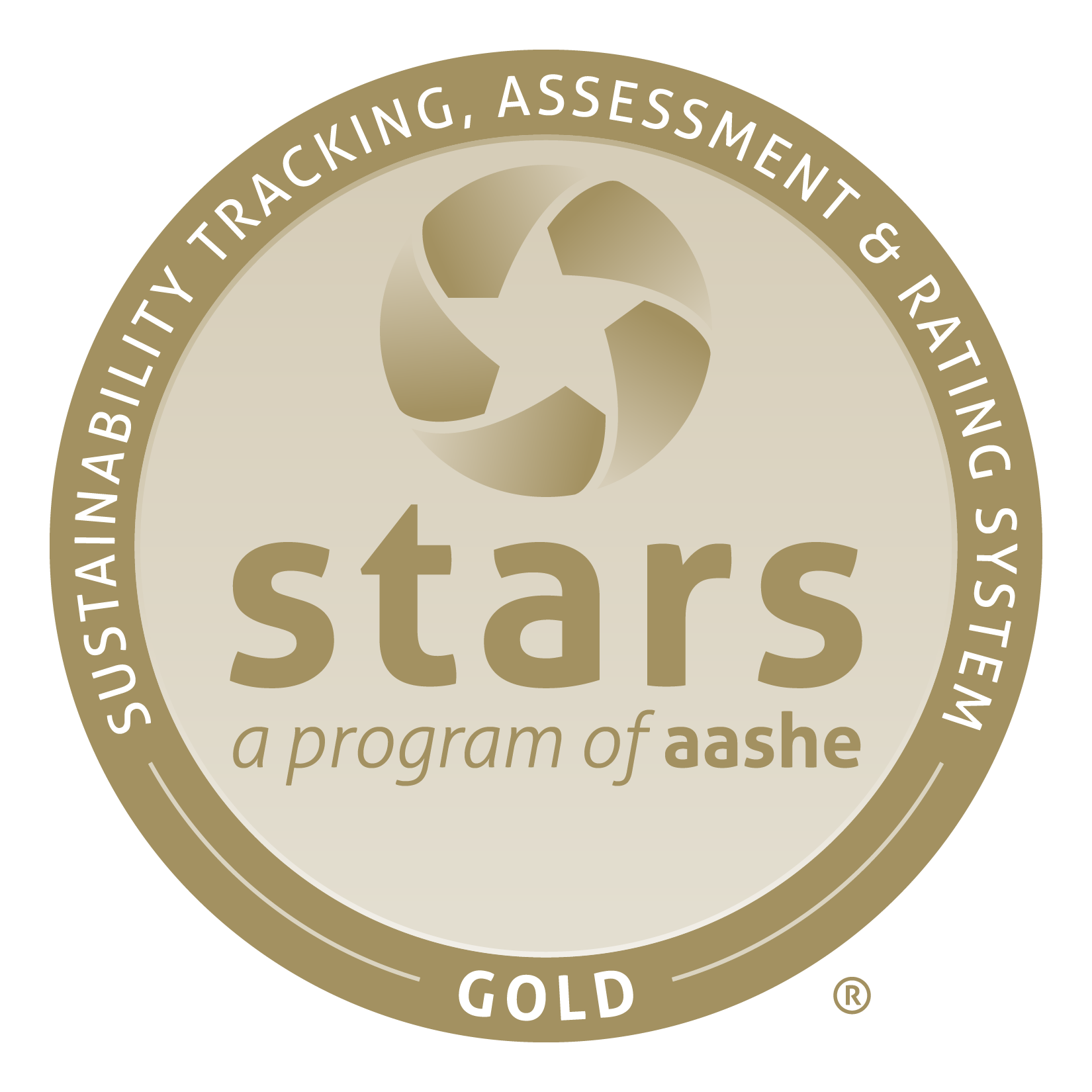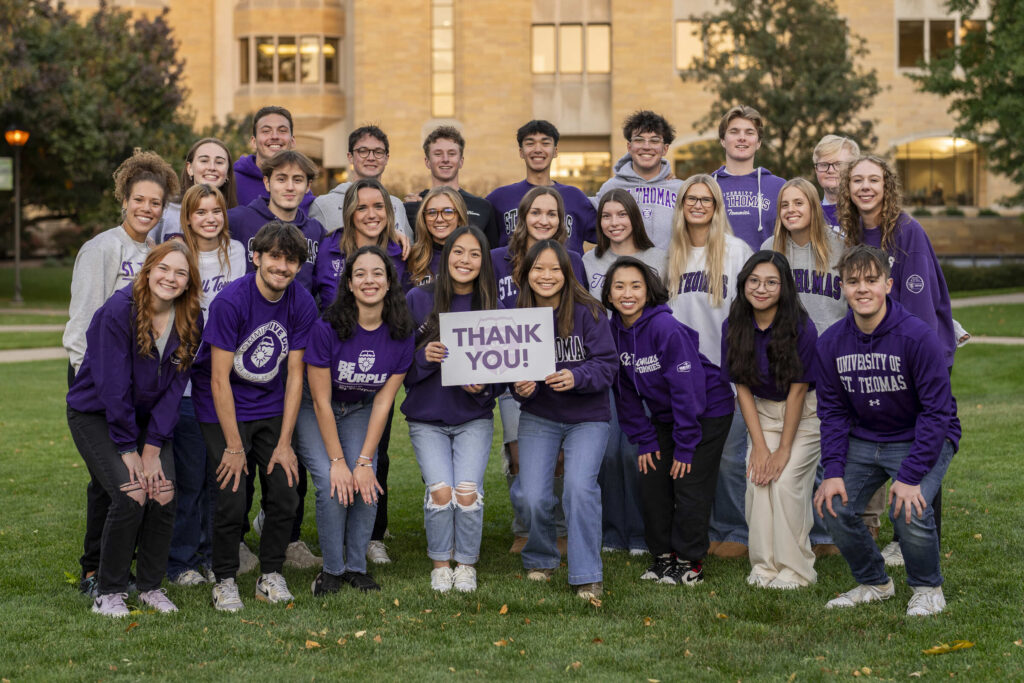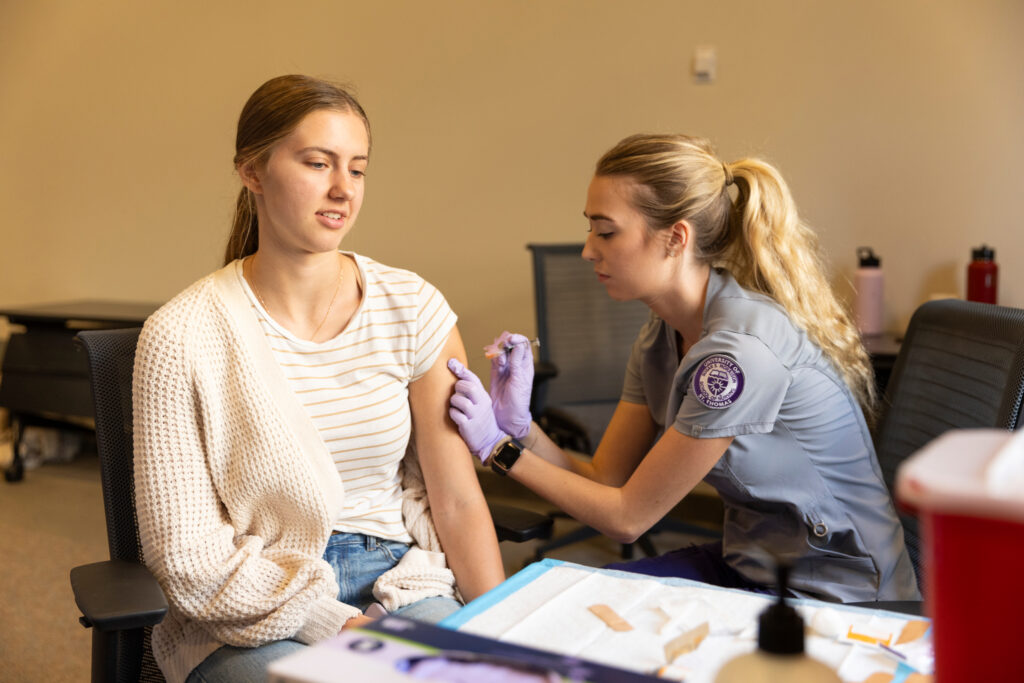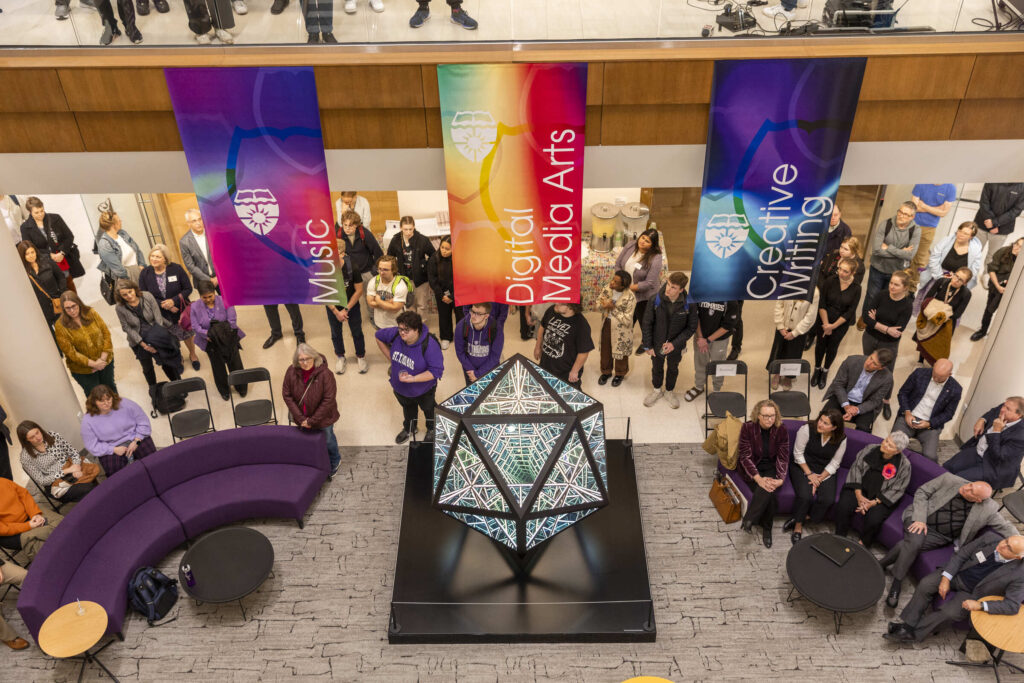Four years ahead of the schedule outlined in St. Thomas 2025, St. Thomas has earned a STARS gold rating in recognition of its sustainability achievements. Overseen by the Association for the Advancement of Sustainability in Higher Education (AASHE), STARS, the Sustainability Tracking, Assessment & Rating System, measures and encourages sustainability in all aspects of higher education.
“I’m proud of the intentional engagement across campus to live and work more sustainably since our 2018 silver STARS rating,” President Julie Sullivan said. “It is very exciting to see the university embracing sustainability and to see it directly connected to the core of our identity, rooted in Catholic social teaching and care for our common home.”
Several points of distinction were noted in this year’s report, including: Tommie East being the first building in its category in the Midwest to achieve the LEED® (Leadership in Energy and Environmental Design) v4 Platinum certification; the development and implementation of the sustainability strategic plan; and the inclusion of sustainability in the new undergraduate core curriculum.
St. Thomas’ full STARS report is available here.
“We have been working hard at achieving the STARS gold rating. When we developed the university’s sustainability strategic plan, we were very intentional about linking our goals to what we learned from our 2018 STARS report,” said Assistant Director of Campus Sustainability and Sustainability Advisory Council Chair Amir Nadav. “The rating is a great affirmation that our process worked, even better than we expected.”
Thanks to the St. Thomas team’s comprehensive data collection and review process, AASHE noted that zero issues required revision, which is very rare.
“The inclusion of a strategic priority on sustainability in St. Thomas 2025 affirms the university's commitment to engage all students and employees in this work as a core component of our mission to advance the common good,” Nadav said. “We all have a role to play in building a more socially just, economically prosperous and environmentally sustainable world for present and future generations.”

Tommie East Residence Hall on the St. Paul campus.
The STARS gold rating is valid for three years. In addition to maintaining performance so far, Nadav said that some specific goals in St. Thomas 2025 include carbon neutrality by 2035, a waste diversion goal of 80% by 2030, having 20% of all undergraduate courses include a sustainability component, and obtaining a minimum of LEED silver certification for new buildings that are larger than 25,000 square feet.
The university received the maximum number of points for 31 of the 73 individual credits reported within STARS. Examples of the credits in which the university received the maximum score include community partnerships, sustainability in undergraduate academic programs, immersive experiences like study abroad and VISION trips, electronics purchasing, support for underrepresented groups, and incentives for developing courses.
Some of the metrics that appear in the STARS assessment include:
- More than 80% of academic departments offer at least one course that addresses sustainability.
- In the past three years, nearly 30% of all St. Thomas faculty members have engaged in research addressing one or more of the United Nations Sustainable Development Goals. And 90% of all academic departments have at least one faculty member who conducts sustainability research.
- The university reduced annual potable water use by 34%, or 22.3 million gallons, between fiscal years 2014-20.
- The university reduced annual energy use per square foot of building space by 15% between fiscal years 2013-20.
- A whopping 100% of the university’s expenditures on electronics are for products that are EPEAT Gold registered.
- 93.5% of all office paper expenditures in fiscal year 2020 were on TreeZero paper made from sugarcane waste fibers.
- The university achieved a waste diversion rate of nearly 59% in 2019.
- Undergraduate and Dougherty Family College students completed more than 107,000 hours of community service hours in 2019.

Students get their bikes tuned up by workers with the Bicycle Alliance of Minnesota during an event hosted by the Office of Sustainability Initiatives outside of the Anderson Student Center on April 9, 2021. (Liam James Doyle/University of St. Thomas)
In both 2018 and 2020, the Office of Sustainability Initiatives sent a survey to all students and employees in order to collect data for the STARS report about sustainability knowledge and culture and St. Thomas. In 2020, 675 employees and 1,282 students completed the survey. Some of the findings include:
- In 2020, nearly 75% of students agreed or strongly agreed that their lifestyle has become more sustainable since attending St. Thomas, an increase from nearly 65% in 2018.
- In 2020, nearly 74% of students agreed or strongly agreed that sustainability knowledge, skills and experience are important to their likely career path, an increase from 67% in 2018.
- In 2020, over 98% of employees agreed or strongly agreed that they are committed to contributing to sustainability at St. Thomas, an increase from 94% in 2018.
Among the 10 Minnesota colleges and universities that have earned a STARS score, the University of St. Thomas’ ranking jumped from eighth in 2018 to third in 2021. St. Thomas’ score of 70.12 is not far behind the top two. Macalester College has a score of 74.86 and University of Minnesota Morris has a score of 73.04.
STARS framework
With more than 900 participants in 40 countries, AASHE’s STARS program is the most widely recognized framework in the world for publicly reporting comprehensive information related to a college or university’s sustainability performance. Participants report achievements in five overall areas: 1) academics, 2) engagement, 3) operations, 4) planning and administration, and 5) innovation and leadership.
“STARS was developed by the [global] campus sustainability community to provide high standards for recognizing campus sustainability efforts,” said AASHE Executive Director Meghan Fay Zahniser. “St. Thomas has demonstrated a substantial commitment to sustainability by achieving a STARS gold rating and is to be congratulated for their efforts.”
Unlike other rating or ranking systems, this program is open to all institutions of higher education, and the criteria that determine a STARS rating are transparent and accessible to anyone. Because STARS is a program based on credits earned, it allows for both internal comparisons as well as comparisons with similar institutions.







